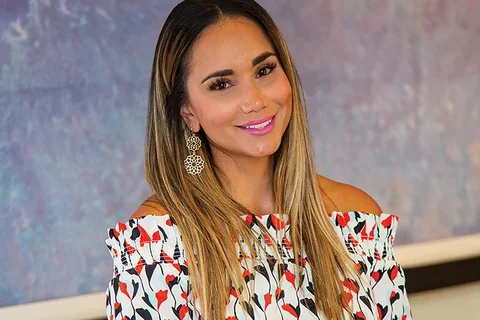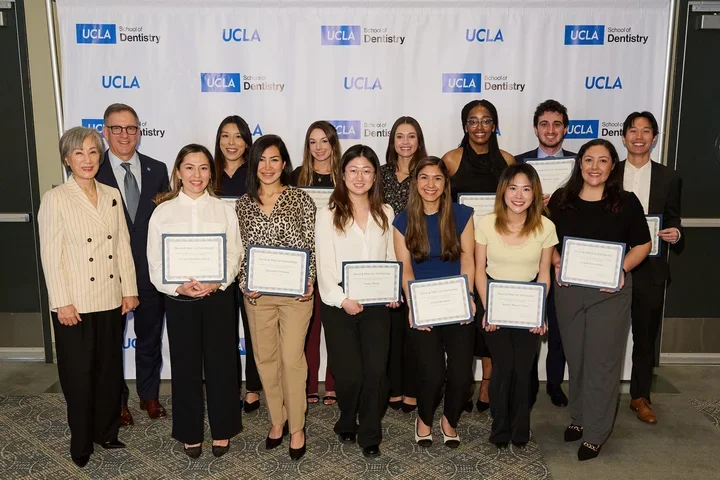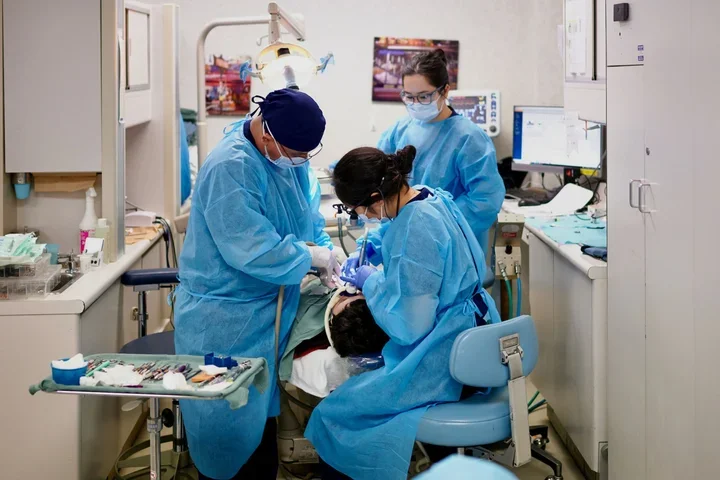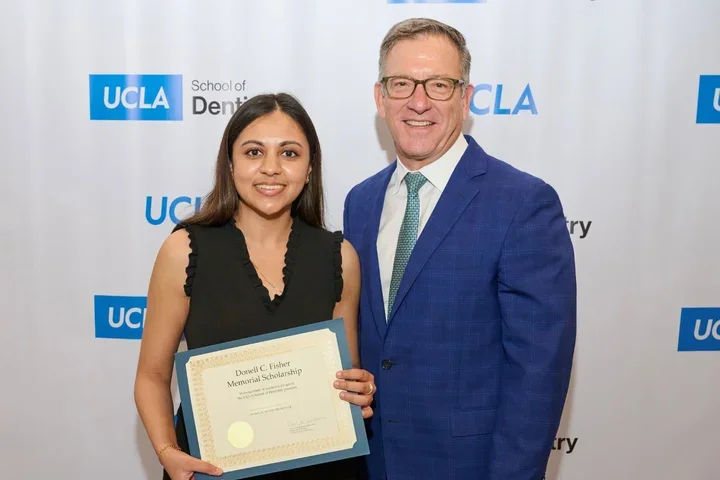Giving Back: Dr. Alejandra Rivera, D.D.S. , P.D. '17
"UCLA prepared me to make the best decisions for my patients. Graduates of UCLA Pediatric Dentistry learn to do things the right way.”

Dr. Alejandra Rivera, a pediatric dentistry alum, took a slightly windier road to becoming a dentist than some of her colleagues. In high school, she worked part-time for a dentist and didn’t imagine she’d ever enter the profession after college. Instead, to help fund her undergraduate tuition, JP Morgan Chase offered her a scholarship in exchange for several years of working in their investment banking department upon graduation.
After completing her bachelor’s degree in psychology from Queens College, CUNY, and working for JP Morgan Chase, she quickly realized finance wasn’t the right path for her. She tried a few other professions, but no other fields captured her interest.
Alejandra returned to the same dentist’s office she worked at while in high school. “I finally felt at home and started exploring the idea of becoming a dentist. For the first time since finishing college, I was excited for the future.”
Dr. Rivera grew up in Washington Heights, New York, the neighborhood that is also home to Columbia University, College of Dental Medicine. She had admired the campus from afar, and after completing a post-baccalaureate program while working full-time at the dentist’s office, she applied to and was accepted into Columbia Dentistry’s Class of 2015. “Shortly into my clinical blocks, I found that pediatrics brought me the most happiness. I knew then that pediatric dentistry was the right path for me after dental school.”
Having gone to undergraduate and dental school in the city she also grew up in, Dr. Rivera felt the need to spread her wings a little and applied to UCLA’s pediatric dentistry residency program.
“The culture in Los Angeles was the biggest draw for me. It’s a laid-back environment, but I also got to experience what it was like to practice in the real world. For me, UCLA had the perfect balance between didactics and clinical practice, which was what I grew accustomed to in dental school.”
Dr. Rivera graduated from UCLA in 2017 and was ready to begin her 2-year commitment to the National Health Service Corps (NHSC). In dental school, she was the recipient of a NHSC grant in exchange for providing health care in an underserved area following graduation. In fall of 2017, she moved to the outskirts of Green Bay, Wisconsin, and became the only pediatric dentist in the area available to treat underserved children.
“I went from New York to Los Angeles to Green Bay. It was a huge culture shock. Those first few months were overwhelming,” said Dr. Rivera. “They needed Spanish-speaking providers, and pediatric dentists are even harder to come by. There are a lot of immigrants from Mexico, South America, and Central America in Green Bay. The patient population is very similar to the patient population I treated in Los Angeles.”
Dr. Rivera sees patients at a community dental clinic where children are either covered by government health insurance or have no insurance at all. She is their only option for care and guidance. The demand for her services and expertise has been incredibly valuable to the families in her town. With a lack of education and understanding of oral hygiene, the majority of her cases involve severe early childhood caries.
“I have learned a lot and worked on a multitude of cases that are typically only seen in textbooks. UCLA prepared me to make the best decisions for my patients. Graduates of UCLA Pediatric Dentistry learn to do things the right way.”
For the second year of her NHSC commitment, Dr. Rivera transferred to central Florida where she is, again, the only pediatric dentist in the area. In this case, she is also the first pediatric dentist that the community health clinic has had.
“When I was young, there were times where I was covered by Medicaid and had challenges with access to care. It’s important to me to leave a positive impression on the families that I meet. I hope that my recommendations change my patients’ behaviors about oral hygiene and set the stage for a lifetime of good oral health.”



